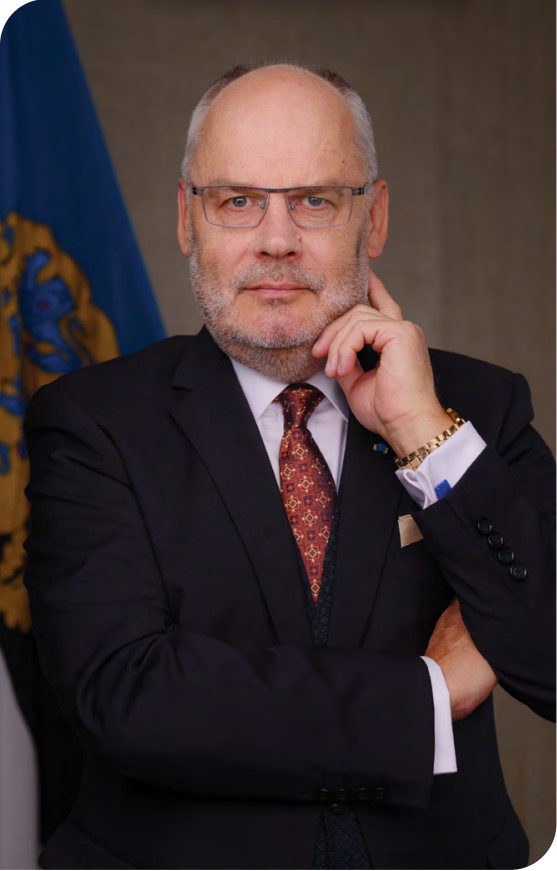Dear reader!
This Estonian Human Development Report could not be more timely. Mental health as a social concern has come out of the shadows in recent years, and it has started to receive the attention it deserves, given the scale of the problems associated with it. This development has been boosted by the crises and insecurities of our time, which have caused more of us to feel mental tensions of one kind or another.
The voices of experts who have felt concerned for a long time have also become louder, and those affected have shared their stories more openly. This last aspect is crucial in order to shake the stigmas so long associated with mental health – particularly the belief that these kinds of problems are not a ‘real’ disease or are merely a sign of weakness. We are all vulnerable and need to know when and how to seek and offer help.
I often experience the importance of this topic in my work, especially when meeting with young people. No matter where the conversation starts, sooner or later, the young people themselves lead the discussion to performance stress, family relationships, bullying and other mental health concerns and risks.
Thanks to the spotlight that mental health has received in recent years, we are already better aware, better able to notice and more willing to speak out. We know that mental health concerns that go unnoticed are like a subterranean current eating away at the soil beneath our feet until the fertile, level ground collapses, leaving behind a black hole. Too many sinkholes and the land becomes barren. Too many broken souls and the nation loses its ability to move forward. In fact, even a single sinkhole is too much.
We know where assistance is lacking. We have a shortage of psychologists and psychiatrists, especially those dealing with children and young people. But one of the main messages of this year’s Estonian Human Development Report is the importance of prevention. Self-care skills, community support in the family, school and neighbourhood, and the ability to recognise and support early – if this level works effectively, we may be able to avoid more serious problems that require specialist help.
It is an age-old truth that prevention is better than cure, even in economic terms. This includes simple things like good sleep, healthy meals and adequate exercise, which, in turn, connects this year’s topic with the discussion of spatial policy in the previous Estonian Human Development Report.
In response to one of my posts on mental health, someone on Facebook once asked if Estonia needed another Tiger Leap, this time in mental health. It sounds tempting, I admit. If we managed to reinvent ourselves as one of the most successful digital states in the world, then surely a concerted effort would also help us achieve mental resilience.
It seems to me, though, that a tiger’s leap might not be the appropriate metaphor here. The tiger picks up speed, takes off and lands some distance away from where it took off. A couple of decades ago, we bought a lot of computers and gave a large part of the population access to the World Wide Web. Similarly, we can (and should) now share mental health first-aid skills and improve the availability of specialist medical care. But the key message of this report is that the
psychosocial, digital and physical environments surrounding us play an essential role.
We cannot extract ourselves from these environments and land somewhere better, so we must focus on improving ourselves and our surrounding environment instead. Let’s think of this as an ant’s scramble rather than a tiger’s leap. Let’s think of it as each of us every day putting in the careful effort to keep our homes, relationships and communities in good shape. And then these environments will also take care of us.
